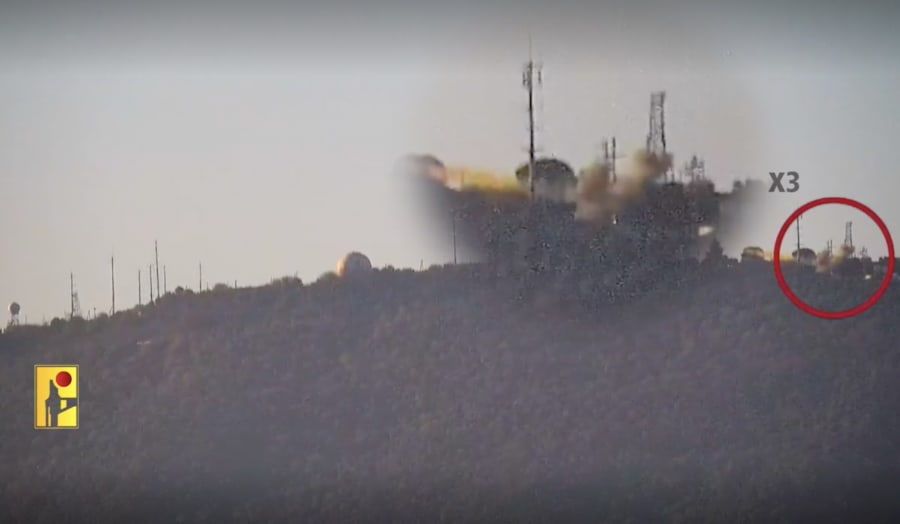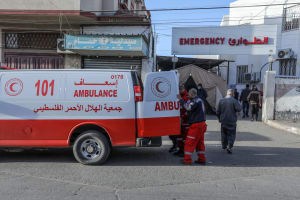Israel admits IDF radar base on Mt. Meron suffered damage from Hezbollah attack
IDF chief of staff: ‘Hezbollah paying ever-increasing prices’

Israel cleared for publication that the strategically important radar base of the Israeli Air Force suffered some damage from the Hezbollah attack on Saturday but stressed that the overall air detection capabilities were not seriously harmed.
Following this statement on Sunday evening, IDF Chief of Staff Lt.-Gen. Herzi Halevi said that Hezbollah has been paying an ever-increasing price since it decided to enter the war, including nine of its fighters who were killed in Israeli retaliatory strikes.
The Israeli Air Force base on Mount Meron is one of the most important sites for controlling the air space across northern Israel but there are others, according to the IDF.
“The damage to the northern air control unit will be repaired,” IDF Spokesman Brig.-Gen. Daniel Hagari said Sunday. “The unit is backed up by additional systems. We have a challenge in the north, and we are ready for it,” he added.
In response to the assassination of Hamas deputy leader Saleh al-Arouri in Beirut last week, on Saturday, Hezbollah fired a barrage of about 40 rockets and missiles at the Mount Meron Air Base often referred to as the “eyes of the state.”
The army confirmed that some of the detection infrastructure in the air control unit was damaged, but added that the existing redundancy allowed the continued defense of the country’s skies.
Hezbollah published footage of the attack, which showed that at least some of the projectiles that struck the base were fired in a straight line from southern Lebanon, indicating the use of long-range anti-tank missiles.
Unlike ballistic rockets and missiles, projectiles flying in a straight line are harder to intercept by Israel's vaunted Iron Dome aerial defense system.
After touring the Gaza Strip over the weekend, Halevi visited the Judea and Samaria Division for a situational assessment on Sunday.
Regarding Israel's northern region, Halevi said, “Hezbollah has decided to enter this war and we are charging it ever-increasing prices, yesterday it with seven deaths, and with two very, very important targets, and we are increasing the price it is paying.”
One of Israel’s retaliatory strikes on Saturday hit targets some 40 kilometers (25 miles) north of Israel, destroying two strategic Hezbollah compounds containing air-to-surface missile systems.
“In the end, we have a responsibility, an obligation, to return the residents of the north safely – not out of necessity – to their homes, which will happen if the increasing pressure we are exerting now will do the job and create a completely different reality, or we will end up with another war,” Halevi added.
Halevi emphasized that the IDF would rise to meet all of the additional security challenges facing Israel at the time.

The All Israel News Staff is a team of journalists in Israel.














